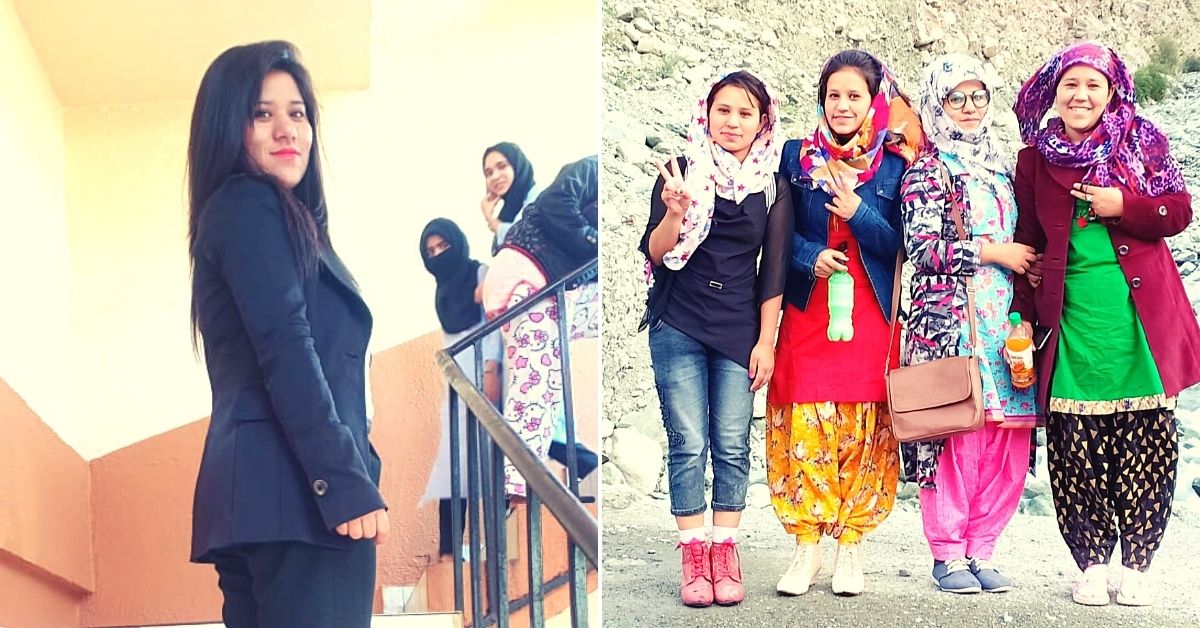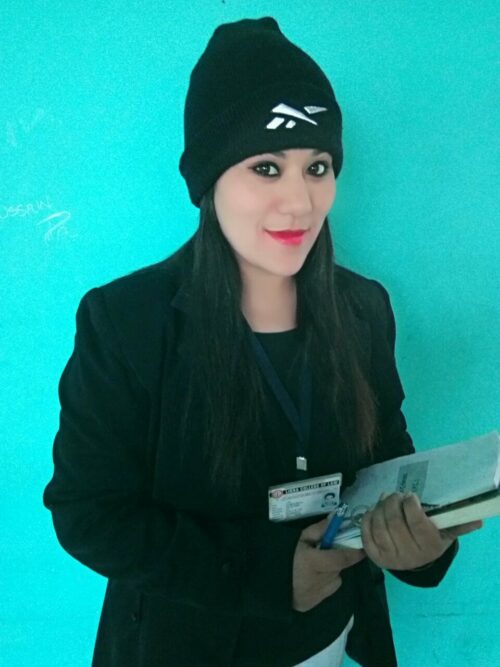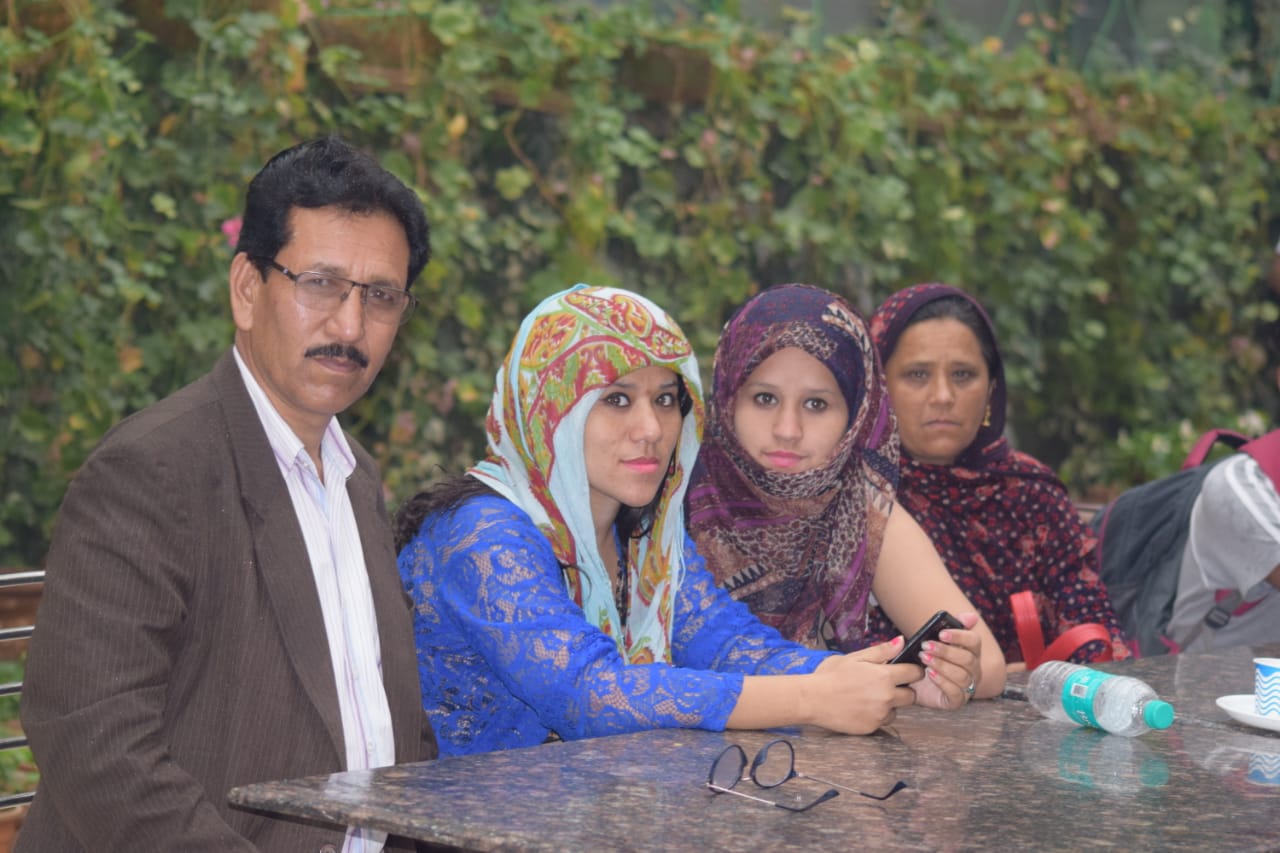‘My Family Was Boycotted’: The Brave Journey of a Ladakhi Community’s 1st Woman Lawyer
"My father sold his land to fund our education. He was among the more progressive men in the village who believed that his daughters should receive a proper education," says Zulikha Bano, the first woman lawyer from Ladakh's Balti Community.

When 24-year-old Zulikha Bano found out last month that she was the first woman from her native Balti community in Ladakh to graduate from law school, her heart was filled with pride.
(Image above of Zulikha Bano on the left and her sisters on the right.)
From the border village of Bogdang in Nubra Valley, Zulikha finished her five-year LLB course from the Libra College of Law, Dehradun (affiliated to HNB Garhwal Central University).
“Initially, I wasn’t aware of my achievement as the first female law graduate from the Balti community in Ladakh. Once my final year results were announced, I began receiving congratulatory messages on social media. I was surprised to receive this news but was also immensely happy. Upon reflection, I thought about the great sacrifices my mother, father and elder sister made to help me reach where I am today. My parents also received congratulatory messages from my native village, some of whom had once forced us out of there,” says Zulikha, speaking to The Better India.

Balti Community & Operation Sadbhavana
Who are the Balti people of whom Zulikha is a part of? Living in some of the northernmost villages of India across Kargil, Nubra, Leh and present-day Gilgit-Baltistan province in Pakistan, it’s a community with their distinctive language and culture that predominantly professes the Islam faith.
Since Independence, the Line of Control that divides India and Pakistan has changed a few times, and among the most affected communities in this regard were the Baltis.
The last significant division of the Balti people happened after the 1971 War, which brought villages like Turtuk, Thyakshi, Thang and Chulunka in the Nubra Valley into the Indian fold.
However, Zulikha and her four siblings (three sisters and a brother) are from Bogdang, which has remained with India since 1948. Until Class 4, Zulikha studied at the Army Goodwill School there, which was established by Lt. Gen (Retd.) Arjun Ray, former Commander of the 14 Corps who launched Operation Sadbhavana.
Following the Kargil War in 1999, there were fears that certain border villages in Ladakh suffering as a result of poor governance and conflict would fall into the hands of insurgency spilling over from Kashmir. To forestall this potential insurgency, Lt. Gen Ray realised that they would have to win the hearts and minds of these alienated communities. With this purpose in mind, he launched ‘Operation Sadbhavna’, where the military would work towards facilitating development, building up infrastructure and encouraging key stakeholders.
The Army Goodwill School in Bogdang was part of this initiative. Among the first parents to send their children there was Ahmed Shah Balti, who at the time was a small-time contractor and the village Numberdar. He would coordinate with the local Indian Army unit to fulfil labour requirements. He sent both daughters—Zulikha and her elder sister Sherine Fatima—and his only son Shabbir to study there.
“In 2000, I was appointed as the village Numberdar. At the time, watching television, constructing a mobile tower or even bringing tourists there weren’t permitted. Girls’ education was barely a consideration. Back then, upon passing Class 8, local clerics would take our girls out of the local government school. Yes, some families couldn’t afford to send their daughters, but social restrictions on girls’ education also existed. When I was a child, families in Bogdang didn’t even consider sending their daughters to school. Villages like Turtuk and Tyakshi that were liberated from Pakistan after 1971 were more open-minded about modern education. Thankfully, the situation in Bogdang today has improved to some extent,” says Ahmed Shah.
He remembers as a young Class 7 student walking around to each house with the headmaster of a local government middle school asking families to send their children there to study. Sadly, Ahmed Shah could not study beyond Class 8 because his family couldn’t afford it even though he performed well in school.
“Thus, I have a deep-seated respect for modern education and an innate desire to educate my children unlike some of my fellow contemporaries who believe that women must always live under the cover of a purdah and impose other such restrictions,” he says.
Progress and Exile
As Numberdar, Ahmed Shah was constantly in touch with senior officers. During his tenure, the Indian Army, as part of Operation Sadbhavana, suggested opening up economic opportunities there through tourism and establishing a school in Bogdang.
“I enrolled my two daughters and son into the Army Goodwill School. Encouraged by the army, we also organised a local cultural programme in which Zulikha danced and Sherine sang. Watching them perform evoked a very adverse reaction from certain influential clerics in the village, who said our family had strayed from the path of Islam. It was something they couldn’t digest. Also, I began working for the local unit of a political party, which professes an ideology that many in my village had strong disagreements with. Even though I was barely influential in garnering votes for the party, many frowned upon me for even working for them,” recalls Ahmed Shah.
Encouraged by conservative clerics, influential residents of Bogang began imposing a social boycott against the family. The boycott, which saw the family barred from entering the local masjid and imposition of fines against anyone associated with them, took hold in 2004.
“That’s when we decided to leave the village. We sent Zulikha and Shabbir to Dehradun to continue their studies while the rest of us moved to Leh for a while. I lived and worked in Leh till 2006 as a small-time contractor. Despite reaching out to all the authorities, local elected representatives and even talking about our problems to local media outlets in Leh and Kargil, I received no justice for the social boycott my family suffered,” he recalls.
“My father was forced to sell his favourite gipsy and his land to fund our education. He was among the more progressive men in the village who believed that his daughters should receive a proper education. Even my mother, Sakina Bano, felt that if her daughters can’t receive a good education without interference from the local community then what’s the point of staying in Bogdang,” recalls Zulikha, who was in Class 4 when she moved to Dehradun.
Emerging from Exile
With life not quite working out for the family in Leh, some of Ahmed Shah’s friends and well-wishers suggested that he start a hostel for young Ladakhi students in Dehradun. They promised to admit their children into his hostel and encourage others to do the same.
“Moreover, my two children were already studying there. They would pay us Rs 5,000-6,000 a month for hostel fees that would cover school uniforms, food, etc. From Kargil and Nubra combined, we started with about 35 students,” recalls Ahmed Shah.
“My elder sister, Sherine, helped out my mother with cooking, washing utensils, pressing children’s clothes and other menial work. When we moved to Dehradun, there was no source of family income besides the hostel. Once my sister finished high school, she began her career as a Balti folk singer. Although her popularity among the Balti community, particularly in Gilgit-Baltistan, had grown very rapidly, it wasn’t enough to sustain her financially. Instead of studying further, she told our father to spend money educating my younger sisters, brother, and I, while she helped our mother run the hostel,” recalls Zulikha.

Coming Back Home
Despite their many differences with Ahmed Shah, the residents of Bogdang today see the value of what he has done for his daughters and the sacrifices made.
“In the past decade or so, there has been a gradual shift in their thinking. More girls have started studying for their college graduation, and those who have had the chance to see the world, as a result, are very happy. Families have realised the value of educating their daughters, although there are financial constraints of sending them outside Ladakh,” says a resident of Bogdang working in Delhi today, who wishes to remain anonymous.
“Despite whatever happened, I still have a lot of love for my village. When I came back to Bogdang after more than a decade in exile about two years ago, it felt like heaven. As a lawyer, I want to work for my village, particularly the new generation and the young girls coming through. I want to disseminate the importance of higher education to girls in my village. When I went back to Bogdang during my third year of college, I talked to some of the young girls there about what I was studying. They didn’t even know what the word ‘advocate’ meant and I spent over two hours explaining it to them. Those who studied with me in the Army School were married with two or three children, and they expressed to me how lucky I was to have such a father who allowed me to study further,” says Zulikha.
With a law degree, Zulikha has plans of working as an advocate, starting her practice in Nubra and harbours a wish to become a judge one day. Next month, she will visit the High Court to complete her registration and begin her practice. Meanwhile, she also wants to start an NGO in Bogdang for children with physical and mental disabilities. Zulikha’s younger siblings, meanwhile, are doing well. Her younger sister Hassina Bano is one year away from finishing her Bachelor’s degree in mass communication and youngest sister Nayima is studying Class 11. Shabbir, meanwhile, has done his B.Tech and is applying for a job.
From living in exile to now encouraging other girls to pursue their education in Bogdang, Zulikha has indeed come a long way. May her tribe grow further!
(Edited by Yoshita Rao)
Like this story? Or have something to share? Write to us: [email protected], or connect with us on Facebook and Twitter.
If you found our stories insightful, informative, or even just enjoyable, we invite you to consider making a voluntary payment to support the work we do at The Better India. Your contribution helps us continue producing quality content that educates, inspires, and drives positive change.
Choose one of the payment options below for your contribution-
By paying for the stories you value, you directly contribute to sustaining our efforts focused on making a difference in the world. Together, let’s ensure that impactful stories continue to be told and shared, enriching lives and communities alike.
Thank you for your support. Here are some frequently asked questions you might find helpful to know why you are contributing?


This story made me
-
97
-
121
-
89
-
167













